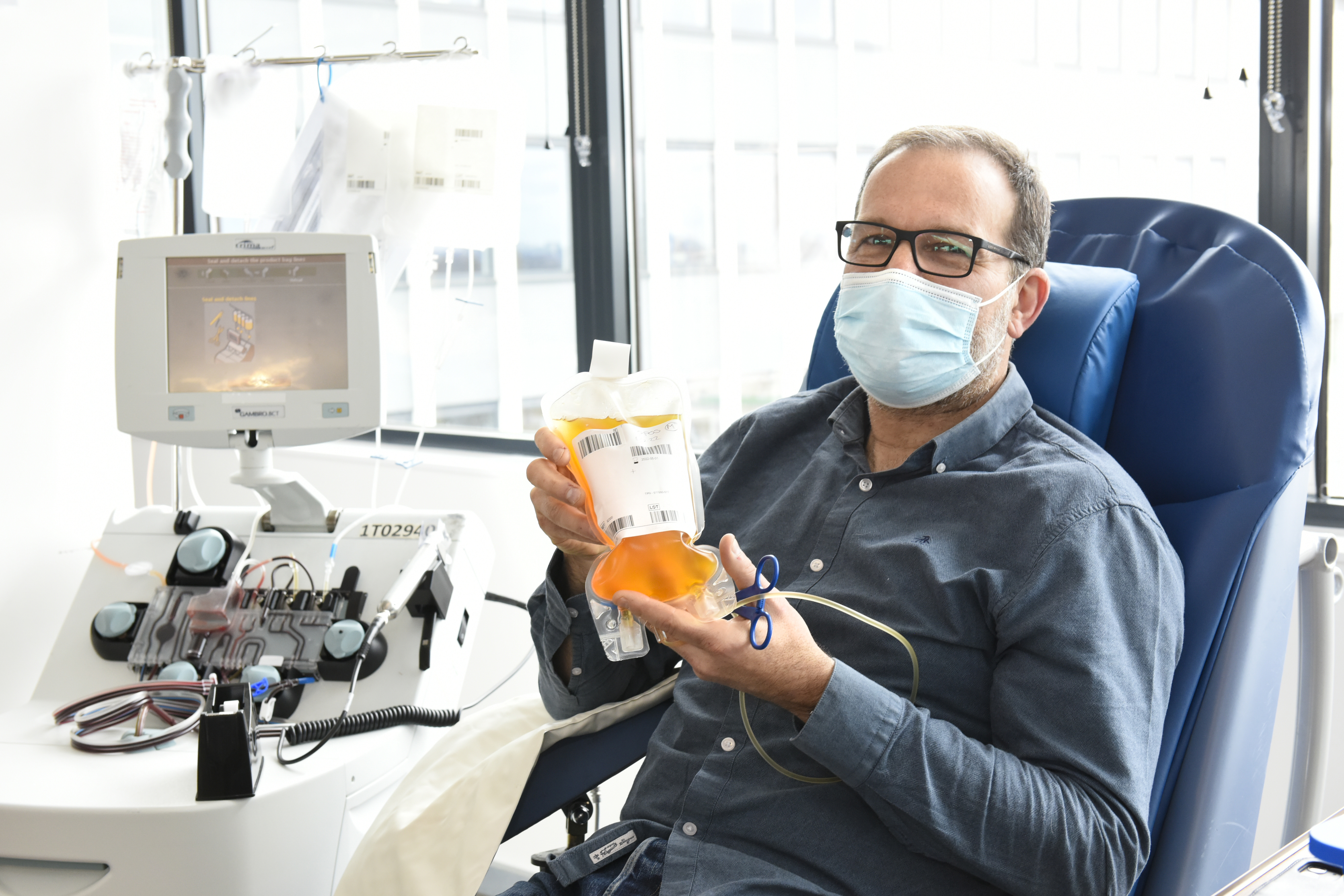Platelet donation
Find out more about switching to platelets
Donations of blood, platelets and plasma are simple and easy ways to make an immeasurable impact to other people’s lives.
They are, however, still a marvel of modern medicine and it’s common for donors to have questions about the process.
Thankfully, our clinical experts are on hand with the answers…
Plasma makes up over half of your blood volume. It’s a clear, straw-coloured liquid that carries platelets and both red and white blood cells around your body and contains important molecules.
Plasma, either separated from whole blood donations or collected alongside platelet donations, is frozen to make a product known as Fresh Frozen Plasma, or FFP.
FFP can also be processed further to make a product known as cryoprecipitate.
Plasma can help the blood to clot, so it’s often used to help patients who have lost a lot of blood and those who are needing emergency life-saving surgery.
Plasma can also be used for medicines, used to treat over 50 different conditions. Some of these conditions are quite rare but can affect patients for all their life. Thousands of NHS patients a year need these plasma treatments. Plasma for medicines is donated on its own. Find out more about becoming a plasma donor.

Preparation for platelet donation is very similar to blood donation. You should drink plenty of liquids to stay hydrated and avoid alcohol. You should also avoid fatty foods as they can affect the quality of your donation.
Please don’t take Ibuprofen, aspirin, and other non-steroidal anti-inflammatory drugs . Paracetamol and codeine-based medicines are fine.
Platelet donation can take up to 90 minutes. Our donation centres have free WiFi and TV screens, so while you donate you can watch TV, use your phone, read a book, or just relax.
During the donation, your blood is taken and spun by a machine which extracts the platelets. The rest of your blood is returned to you.
We keep a close eye on you while you donate. Snacks and drinks are available throughout your donation.
Platelets are used to help stop bleeding and for people with low platelet levels due to cancer.

Find out more about switching to platelets

Plasma is made into medicines that save and improve the lives of thousands of people with rare diseases.

Remarkable stories from the world of giving blood – be they from the research lab, the hospital bed, or the donor chair